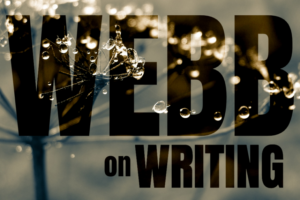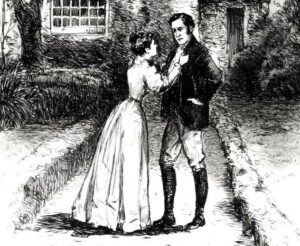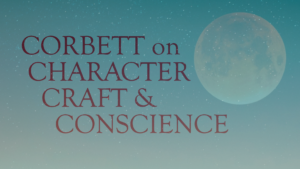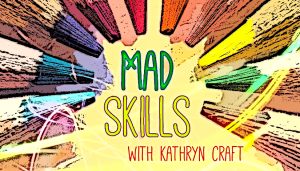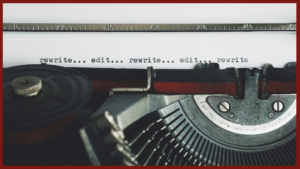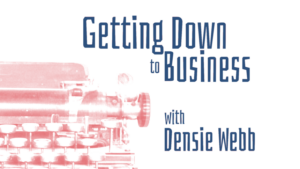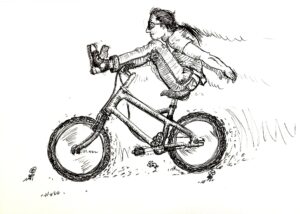REAL WORLD
Late in the spring, my partner registered us for an August pétanque doubles tournament. Invented in Provence shortly before WWI, pétanque is a scrappy French bowling game played on a gravel strip with hollow steel balls that are thrown to land in the closest proximity to the cochonnet, or jack—a little wooden ball. Players of all shapes, sizes, ages, abilities, genders, political affiliations, and ice cream flavor preferences will find themselves welcome on a pétanque terrain. You should totally check it out.
In fact, it’s too bad I don’t play. I think I’d really like it.
My sweetie discovered the sport in early 2020. A collegiate baseball champion, he took to it like a duck to a pond. Pétanque, which demands keen eye-hand coordination, is perfect for his skillset. Because the game is played outdoors with no physical contact between players, the local league became a social lifeline for a community in pandemic isolation. My guy went all in, building a court in our yard and practicing every chance he got. Within months, he was winning tournaments.
I’ll often sit in on Sunday club practice after I walk the dog through the adjacent state park. I turn out for every local competition. Yet when asked to join a game, I refuse. I played a few times in those early days, but I felt clumsy and inept. I quickly realized I would, amazingly enough, have to practice if I hoped not to embarrass myself on the court. Since I didn’t possess a natural acuity, why bother? I didn’t have the time or patience to practice weaving a complicated toss through a rocky terrain or to conduct drills for that awesomely satisfying carreaux sur place—when your boule hits an opponent’s with such precise force your boule replaces theirs.
I couldn’t make the leap to doing something simply for the joy, fun, and fellowship of it.
~
My approach to writing has felt a lot like my attitude toward playing pétanque. For decades I sat on the sidelines with my dreams, thinking one day I’d like to write creatively. As a kid, I filled spiral-bound notebooks with stories penned in sloppy cursive that was nearly engraved on the page because I could hardly write fast enough to keep up with my thoughts. But by college, I’d left creative writing behind. I was never going to be good enough to write for publication, so what was the point?
It wasn’t until my early forties, when I took a chance on a writing workshop in Seattle, started a blog, and began reviewing books on Goodreads, that I rediscovered my love for writing. The simple act of showing up to the page brought me joy, comfort, and inspiration, separate from any need or desire to achieve something from my stories or posts.
Then it happened. I submitted my first short story and it was selected for an anthology. The siren song of validation was irresistible. It’s not that I began writing for publication, but now my writing had an end goal. I wanted to see my work in the world.
Within three years, I’d completed my first novel, landed an agent, a book contract, and saw more short stories through to publication. I was on fire. Another novel, another contract. And then…
I […]
Read MoreThe creation of fictional worlds with tight internal logic and vivid details that bring them to life. Characters who feel so real we care what happens to them. Storylines that cause laughter, tears, disbelief, and the ability to consume our attention—even blur the line between fantasy and reality.
Am I describing novelists/novels here or politicians/politics? Probably both, here in 2024.
I’m sure I’m not the only one who’s noticed similarities between the methods we use to create fiction and the tools of mass manipulation some politicians lean on these days. So while it might seem like they’ve been stealing from our playbook, let’s see if we might learn a thing or two from them.
Understand Who Wields Control and How Information Moves
In today’s world, control of information is one of the most powerful tools available to those with a platform–and political figures (and owners of social-media companies) have some of the biggest around. The combination of platform and a person’s character matters a whole lot. A caring person on a big platform can do much good–shout out to Oprah Winfrey–but a self-serving person on a big platform can do a lot of harm. Whether it’s cherry-picking facts, distorting statistics, or repeating the same selective or false narrative until dissenters are either drowned out or start nodding in agreement, those who hold power often manipulate information to twist fact and fate to their favor, and to maintain control.
How to use it: To make control dynamics feel authentic in your wip, consider how information moves in your fictional world and where the power lies–the people who hold sway with others, the community leaders, the fire-starters. Who presents themselves as a hero when they’re really manipulating the narrative for their gain? Who benefits from the way things are, and who stands to lose if the status quo is upended?
It’s not only likely you have one potential power dynamic in your manuscript but several. If you struggle to find them, look for relationships between players of unequal power. This might be as common as a parent-child relationship or as unique as one between an animal trainer and an elephant. Now ask yourself if the inequality there is being utilized or neutralized. Unless the person/player with influence is genuinely a Switzerland of your story, you may have left some power plays on the table.
If you do have a character who in some way abuses authority, be sure to spend some time considering the why of it, as thin or no motivation here can deliver a thin character. Some possible motivations include consolidating or maintaining power; attracting allies; suppressing opposition or progress; providing others with a narrative so they don’t think critically for themselves; simplifying complex issues into black-and-white terms and suppressing nuance; distracting others from their own flaws or vulnerabilities; preventing harm to something they value, including themselves; and financial or other personal gains.
Try it: Draft a scene where a character discovers that something they’ve believed their whole life was a carefully constructed lie. What information was withheld from them, and who controlled it? How does the revelation change the course of the story?
Divide to Conquer
Division is one of the most powerful tools in a manipulator’s arsenal. It’s easier to maintain control over people when […]
Read MoreHave I said all I need to about craft and the writing life? This is what I asked myself as I searched my mind and heart for a compelling topic to write about. I have literally thought about this post for weeks and kept coming up blank until I realized that was the very thing – this coming up blank – that has plagued my writing life for the past six months. I’d sit at my desk and stare at my WIP, move a few commas around, reread what I’d written, maybe manage to eke out a few sentences, and then walk away. Over and over again, week after week, month after month. It’s been a frustrating year in that regard, and I started doubting the premise of my WIP. Would anyone want to read this book anyway? And then I started doubting myself. Maybe I couldn’t pull off what I was trying to do on the page. Maybe I’d forgotten how to write entirely.
So I’d been paralyzed, so much so, that I’d been stranded at the same 30k word count for months.
I’ve Got Nothin’
Read MoreMary insists that Frank obey his family’s wishes and not see her anymore.
As writers, you always want to be pushing the boundaries of your reading. With that in mind, I’ve turned this month’s article over to my business partner, personal editor, fellow writer, and wife. Ruth can’t go very long without going back to her very favorite genre, nineteenth-century British novels, and her expertise far exceeds mine. Enjoy. Dave King
When I’m altogether tired of modern novels with their political correctness, literary preciousness, and occasional whiffs of meaninglessness — when I am, in short, weary of the modern world — I go back to my best reading joy: British novels of the mid-nineteenth century.
It was such a prodigious age for stories that the variety of novels written is enough to suit every reader-writer. One of my favorites is Thackery, where we meet the deplorable Becky Sharp, who lands herself in Brussels just in time for the battle of Waterloo. Thackery’s description of that world-changing carnage is the best account of the battle that I have ever seen in any source in literature or history. For those who would like to discover what kind of depressed and diminished history we women have triumphantly overcome, there are many nineteenth century sources. Think of the helplessness of a woman in a terrible marriage in The Mill on the Floss, or the misery of the sweet, young governess, Jane Eyre, betrayed by her arrogant and lordly employer.
But when I settle into a novel by my favorite author, Anthony Trollope, I am at home in a world where the characters are as modern and familiar as those around me in my own life. And his female characters are always as real as I am myself.
Lately, I’ve been revisiting The Chronicles of Barsetshire, his most famous work (with possible competition from The Pallisers). One of my favorites is the third in the series, Dr. Thorne, the account of a country doctor with no pretentions as to his profession. He is looked down on by those who cater only to the health of the upper class because he charges the same modest fee to everyone, rich or poor. He takes responsibility for his brother’s great sin in sexually forcing a dependent servant girl. After the death of the rapist, the servant falls in love with a man of her class who wants to emigrate to America but does not want to raise another man’s child. Dr. Thorne takes responsibility for the infant Mary, has her looked after by friends at a distance through infancy, gives her a fine education, and brings her as a young adult to Barsetshire, introducing her to the world as his niece.
Of course, she and Frank, the heir to the nearest stately home fall madly in love, though she is a penniless, illegitimate child, and Frank must marry money because his father has encumbered the vast acreage of his property with countless debts. The novel follows the story of how these two unlikely lovers find their happy ending against fearsome odds.
In the not-yet-formed structure of nineteenth-century novels, the author can do whatever he or she pleases and often does. So don’t be put off by, say, the […]
Read MoreSome writers have it in mind from the beginning, for others it might be last-minute addition, prompted by a publisher’s question or a sudden impulse. To dedicate or not to dedicate—that is the question.
Dedications in books are certainly very common. Of the seven books on my bedside TBR pile, for example, just two lack a dedication. One of these features an epigraph instead, a line from a poem which expresses something at the heart of the book, and the other has no dedication at all. The dedications in the other five books are all personal, addressed to important people in the author’s life, which are in fact the most common kinds of dedications. Occasionally, though, you might see a more general type of dedication, in the vein of ‘to all those who have been there’. And it’s not just a modern thing—dedications in books have been common for hundreds of years. They started as statements of gratitude to patrons—for example, Shakespeare’s famous, enigmatic dedication for the Sonnets (though some say it wasn’t Shakespeare but the publisher who wrote the dedication). Or even further back, 12th century French writer Chrétien de Troyes’ dedication of his extraordinary seminal work, Le chevalier de la charrette (the Knight of the Cart), which simultaneously launched the character of Lancelot, a massive craze for Arthurian romance, and, for a francophone like me, the birth of the novel (‘roman’ being ‘novel; in French). Chrétien dedicated the work to his patron, Marie de Champagne, daughter of Eleanor of Aquitaine, writing it as a graceful, sprightly poem which cleverly manages to avoid outright flattery, and a light touch that combines humor and gratitude. (If you read French, you can see it here.)
But from at least the 19th century, book dedications tended to be more personal. Looking up some famous book dedications as I was preparing to write this post, I found some that were basically mini-letters to family members or friends, such as CS Lewis’ affectionate message to his god-daughter Lucy in The Lion, the Witch and the Wardrobe, and John Steinbeck’s touching letter, for East of Eden, to a friend who was also his editor. Others, like PG Wodehouse’s rather acidly humorous dedication to his daughter Leonora, were like a mini-version of the author’s characteristic style, or more surprising in their form, like Carl Sagan’s lovely, poetic tribute to his wife Annie. Although never as popular as personal dedications, general dedications also started to become more common in the 20th century and beyond. For example, Agatha Christie wrote a tongue-in-cheek dedication of The Secret Adversary to ‘all those who lead monotonous lives.’ She also wrote many personal dedications, and you can read a compilation here). Jack Kerouac wrote a pithily disillusioned dedication, ‘To America, whatever that is’, in his book, Visions of Cody. If you’re interested in reading about more famous book dedications and their backgrounds, this oldie-but-goodie article from the New York Times in 1982, is worth a look.
Okay, so I did go down the rabbit hole a bit with my […]
Read MoreMany say it’s more challenging than ever to secure agent representation or find a publisher willing to acquire your work. While that may be true, it’s also a fact that there is so much you can do to be sure your query submission package captures the attention of industry professionals.
You’ve spent a lot of time perfecting your writing. Now you’ll want to be knowledgeable and strategic about finding the right home for your work. I hope you’ll let me help.
After years of guiding writers through the submission process, to go on to publish their work in all kinds of publishing venues, I’m excited about my fall course aimed at preparing you to submit to agents and editors. In this six-session workshop, I’ll take you through what you need to know, and offer personalized guidance for what you need to generate to confidently begin the submission process when you’re ready.
At the end of the six-week program, you’ll have:
Tuesdays September 17 through October 15 from 7:00 pm-9:30 pm ET | Virtual | with a bonus session in November to address the inevitable questions you’ll have once you begin the query process.
Registration is $550
Email Lynne at info [at] lynnegriffin [dot] com for questions or to register.
ABOUT LYNNE REEVES GRIFFIN:
Lynne’s work has appeared in Parents, Cognoscenti, Psychology Today, Solstice Literary Magazine, Chautauqua Journal, Craft Literary, LitHub, and more.
She is the author of the novels, Life Without Summer (St. Martin’s Press), Sea Escape (Simon & Schuster), Girl Sent Away (SixOneSeven Books), and The Dangers of an Ordinary Night and Dark Rivers to Cross (Crooked Lane Books). She’s also the author of several nonfiction books, including Negotiation Generation (Penguin).
As a developmental editor and ghost writer, Lynne has guided writers to publish dozens of books with all types of publishers. For more about her work visit: https://lynnegriffin.substack.com/.
Read More
For today’s post I’m interviewing oral historian Alison Owings, whose latest book, Mayor of the Tenderloin, about San Francisco homeless advocate Del Seymour, came out this past Tuesday, September 10th.
The book has garnered considerable pre-publication praise, such as:
“Mayor of the Tenderloin is a charming, sometimes heartbreaking, tender, and inspiring story, important and beautifully written.”
—Anne Lamott, author of Almost Everything
“Alison Owings is a master of oral history. She is a great storyteller, and in Mayor of the Tenderloin, she has a great story to tell.”
—Dan Rather, author of What Unites Us
And Kevin Fagan remarked in a San Francisco Chronicle review:
Del Seymour is one of the hardest-working advocates for homeless people in San Francisco … and is regularly consulted for his street wisdom.
That wisdom came the hard way. He used to be a homeless crack addict and pimp, jailed many times before he shook drugs 14 years ago and started his uplifting [Tenderloin] tour and Code Tenderloin jobs programs. But what most people don’t know is that before all of that, he was an Army medic in the Vietnam War, a Los Angeles Fire Department paramedic, owner of a construction company and an electrician.
That’s where this book fills in the gaps. And how. Author Alison Owings lays out the at-times astonishing journey that led Seymour from a hard-knocks childhood in the Chicago projects through an adulthood that had him sleeping in a cardboard box in Sacramento, doorways and dive hotels in San Francisco, making and spending money like water legitimately as a businessman in Los Angeles and illegitimately as a pimp here, and finally shaking dope cold turkey when he hit rock bottom in a fight over $10 to $20 worth of crack.
Alison began her writing career as a journalist and has traveled extensively around the world. Her travels specifically in Europe inspired her to write a satire, The Wander Woman’s Phrasebook / How to Meet or Avoid People in Three Romance Languages, and her highly praised first foray into oral history, Frauen: German Women Recall the Third Reich.
Frauen set the stage for her next three multi-year projects, Hey, Waitress! The USA from the Other Side of the Tray; Indian Voices: Listening to Native Americans; and now Mayor of the Tenderloin: Del Seymour’s Journey from Living on the Streets to Fighting Homelessness in San Francisco.
Their thematic commonality? An examination of stereotypes. The implied question: when you picture a German woman of the Third Reich, or an American waitress, or a Native American, or a homeless person, do you see them the same way after reading these books?
Hi, Alison, welcome to Writer Unboxed. You come from a journalism background, but you’ve focused specifically on oral histories in your last four books. What prompted your interest in that unique approach?
In a way it’s an adjunct to journalism—asking questions. It began inadvertently, too, when I realized that retired German women I met who were living in a village in southern Spain were witnesses to the Third Reich and had more or less been ignored. They became the basis of Frauen and set my preference of “interview virgins”—first timers. I’m not too interested in interviewing […]
Read Morephoto adapted / Horia Varlan
Back when I was an arts journalist, a friend who had just read my latest dance review said to me, “I’m sorry you didn’t like the performance. What a waste of time.”
I had no idea what she was talking about. I couldn’t possibly have written about dance for two decades without believing that every opportunity to engage with art—whether or not I “liked” it—is a growth process. Recognizing this in your own life can be a springboard to leveling up your writing game.
The most enjoyable part of your ongoing education as a novelist is having a tax-deductible reason to get swept into a fully immersive story that suspends time and leaves an aftertaste of revelation. Now, though, you’re reading for two. For your inner writer, any warm, fuzzy feelings that remain after closing a novel’s back cover will be secondary to a higher goal: what you might learn from the story, even if it disappointed you.
So before you unwittingly echo some version of the refrain, “I wasted good money/ten hours of my time on this book that I’ll never get back,” consider leaving that complaint to those readers who never push themselves to grow. Writers benefit from reading widely. Period.
Let me count the ways—six of them, anyway, as I’m sure there are more—that you can move a disappointing novel from the “I didn’t like it” column to the “This book was a good teacher” column. I’ve organized the list by complaints that, on the surface, seem justifiable.
1. I refuse to finish—I have to watch what writing I pour into my brain.
To inspire my own novel writing, I tend to read fiction that is more literary than my own. Such image-rich craft jump-starts my imagination and ensures that I’ll stretch to the limits of my capacity. And yet my teaching and developmental editing require that I am conversant with a range of published material along the commercial-to-literary continuum—one can’t expect everyone to write like Toni Morrison. Author Katherine Center (The Rom-Commers) even stopped setting that expectation for herself when she left behind her MFA-inspired literary projects to embrace the contemporary romances that shot her onto the New York Times bestseller list.
To honoring both inner reader and writer, I no longer set aside a novel before asking myself what lessons it has to offer. Why did this story fail to engage me? Why couldn’t I relate to this protagonist? What prose patterns ground on my nerves? What weighed down story movement to the point that setting the novel aside occurred to me in the first place?
2. But it was a New York Times bestseller!
We’ve all heard writers claim that their oft-rejected novel is better-written than the bestseller they just finished. That may well be true. But that disappointing read from the list still has much perspective to offer writers about the industry they hope will one day support them. The hardest lesson is this: Publishing is not a meritocracy. It’s commerce.
These days, it’s rare to find a title that was elevated to the list due to a growing, merit-based swell. Bestsellers are now “made” through advance campaigns publishers employ to safeguard profits […]
Read More“Oh my goodness!” a young blonde woman said. “Are you a real author?”
I was sitting at a display table inside my local Barnes & Noble, signing my latest book.
“Is this your book?” her friend, a brunette, said. Without waiting for an answer, she picked up my book and flipped through the pages.
“It’s my story,” I told her.
“I don’t know if I could ever do that,” the blonde said.
“Are you interested in writing?” I said.
The blonde pointed at the brunette. “She is.”
“I haven’t really written anything,” the brunette said. “But I would like to someday.”
“Someday could be today,” I said.
“I don’t know how you do it,” she said.
“One chapter, one page, one word at a time,” I said.
The two of them stayed at my table until the next reader showed up. They didn’t ask me to sign a book. But that was okay. They offered me an opportunity to encourage other hopeful writers—which I love doing. I hoped they’d carry my words home instead.
I feel privileged to meet so many young writers when I’m out and about in a professional capacity. But many of these encounters leave me feeling a deep longing for a better collective understanding of what it means to be a writer.
Writers can be some of the most self-conscious, unconfident people. They minimize their abilities (though we’ve all met writers on the opposite end of that spectrum, I’m sure). Many of them struggle to believe they know what they’re doing. They question everything.
I remember doing the same as a young writer. Did I have what it took to succeed? Was I even any good at writing? How did one write a book?
(These questions, by the way, still visit me in my most unconfident seasons. I think that’s pretty normal for writers. Doubts don’t go away forever; they just visit us in cycles.)
As writers, we put ourselves out into the world. Invite people into our private thoughts. Wait for them to judge (and judge they will). And that’s terrifying.
So much can knock our feet out from under us. I recently discovered one I didn’t quite expect but probably should have.
I had a conversation with my agent about a young adult book I wrote. It deals with a personal subject that calls an institution to task (that’s so vague and helpful, I know). My agent said, “It might not be the best time for this book.”
“Oh,” I said.
“Don’t get me wrong,” she said. “I love it. But it will likely be banned.”
Book banning. That will certainly punch a hole in our confidence. Make us question whether book banners have a point. (They don’t.)
There are other shaky places in a writing career. All the rejections we accrue for a manuscript we love. A sticky place in a manuscript that won’t work itself out. Even something as simple as a friend getting a nice award or accolade while we get… a collection of bad reviews.
When we’re wallowing in despair about our chosen career and questioning whether we really want to put ourselves through this heartache indefinitely, here’s what I want us to remember:
Our stories matter—and no one else can tell them
You know what books can do? They can change the world. They can change hearts and minds and perspectives […]
Read MoreIn my previous post for Writer Unboxed, I wrote about defining success, prompted by a friend’s question about my first book: Was your book successful?” I examined how success can be defined differently and how it varies from writer to writer. But since then, I’ve come to realize that my exploration of the topic wasn’t quite complete.
In the year since my debut, I’ve learned a hard truth: The metrics I once considered indicative of success didn’t turn out to be as significant as I originally thought. Despite not achieving many of the lofty goals I had envisioned, such as signing with a dream agent, securing a six-figure book deal, making the New York Times bestseller list, or receiving a star review, I’ve discovered that success can manifest in unexpected ways.
Success Might Come Later
Like many aspiring writers, I had a list of dream agents. Due to the uniqueness of my situation (I received a book deal before I signed with an agent), I had numerous offers from agents, one of which was my dream agent. Or so I thought. This dream agent represented a few of my favorite writers and worked at a large New York based agency. However, when given the opportunity to speak with them, I quickly learned that their vision for my book did not align with mine. In fact, an edit was suggested that I did not only disagree with but was a major deal-breaker for me. My dream agent wasn’t so dreamy after all.
Instead, I signed with an agent who wasn’t on my initial dream list. Yet, she has become my biggest advocate. She is now my dream agent, not because she sounds good on paper or works at a splashy agency, but because she supports me through revisions, provides encouragement during deadlines, and has negotiated two major deals. I can’t imagine navigating publishing without her. Writers, it’s okay if you sign with a smaller or a lesser-known agent. The right agent might not always match the fantasy you’ve envisioned, but they can be a perfect fit in ways you didn’t anticipate.
It should come as no surprise as a debut author that I did not sign a six-figure book deal. Far from it. However, I recently signed a six-figure book deal for my next two books, negotiated by my agent who is now truly my dream agent. Writers, don’t be discouraged if you don’t achieve your goals right away, success might arrive later than expected.
Success Might Not Be Immediately Apparent
I’m aware that I’m not a widely known author yet. In fact, most of you reading this article probably have never heard of me or read any of my books. And you know what? That’s okay. Because it proves my point. You don’t know me because I have not made the New York Times bestseller lists. I have not been nominated nor won any major publishing awards. The truth is, the success of my books isn’t immediately visible.
A study by EPJ Date Science showed that of the 100,000 new hardcover books published annually, fewer than 500 make it on to The New York Times Best Seller list (0.5 percent). Many novels (26 percent) appear on the list for only one week and achieving such a […]
Read MoreMy dad, Grant Overstake, has written millions of sentences. As a former journalist, pastor, and now novelist, he’s got what the writing world considers “chops.” Big papers like the Miami Herald published his sports column for years, and small papers had his by-line on every article from op-eds to sports to obits.
His young adult sports novels are precise, beautiful, engaging. His sermons, spoken word he wrote to help rural Kansans navigate their faith journeys and complicated lives in the late 90s, were captivating, heart-felt, well-rounded. This man has done it all in the writing world — if I listed his awards, I’d reach my word-limit in this article.
I decided early in my life that I, too, would be a writer. If you’re a parent and you try to get your kid to find passion in the things you love, you likely will feel one of two things: the sting of rejection accompanying an eye-roll, or the wave of pride accompanying an attempt. My first attempt was verbal storytelling, just like my dad behind the pulpit. It turned into written storytelling as soon as I could hold a pen. Sign me up, Dad! I wanted to be like him.
Sometimes, a sign-me-up attitude can be intimidating as a parent. What if your child is no good? What if they’re not coachable? What if criticism of them is too much? I don’t know what form of bravery swept me as a child, but I showed my award-winning journalist father my first attempt at a novel, written in a wide-ruled spiral-bound notebook.
“Don’t overwrite,” he said. “Simplify it. Here, read this.” And he handed me Hemingway, Herman Hesse, and Rick Reilly.
In high school, he read my articles for the school paper and with his bracing, left-handed scrawl, edited with no hesitation. I remember, at first, that it stung. I might’ve cried. I was fifteen, learning from a master. I worked harder, read more closely, listened carefully. I built my words on the true stories from a small-town high school where football reigned supreme. In this world, the girls on the sidelines weren’t writing articles; they were dressed in cheer uniforms, caught up in the spectacle rather than the storytelling.
I donned a cheer uniform, too, and learned and listened to how sports were played. I wrote for myself, for my classes, for my newspaper, for essay contests. I sought my dad’s praise, his admiration, his subtle nod that affirmed I’d done it right. I won some of my own awards.
I had to learn, from an amazing writer, how to accept what a first draft is: each sentence might change. Bones are there, meat needs to fill in around it. Simpler is better. Red ink is strengthening your work. None of this is personal – these words are not tattooed on you. Nothing is permanent until the paper’s put to bed, kid. I remember the smell of newsprint, the dusting of ink on the sides of his hands, his press badge on the kitchen counter, his fingers calloused with the grip of a pencil.
I learned how to accept his red ink […]
Read MoreAt least one academic publisher is cutting deals with AI and not allowing authors to opt out of the deal; could fiction publishers be far behind? The Author’s Guild has stepped up to the book-banning plate, condemning Utah’s statewide book ban (including books by Judy Blume), gaining a partial victory in Iowa, and suing Florida for its book-banning law. Go Guild! A survey finds 28 librarians who have been asked to remove books from library shelves. Open Road Integrated Media offers a workaround for book bans—a program that helps you find banned books near you. Book Bars in New York are spreading, check it out! While Costco earlier decided not to sell book year round, Barnes & Noble is opening new stores! Dyslexia-friendly versions of popular books are available. Pine & Cedar Books, a new imprint of Flatiron Books, will launch in summer 2025. And last, but not least, stay tuned for Bookseller’s survey on authors advances and royalties.
AI
Wiley set to earn $44m from AI rights deals, confirms ‘no opt-out’ for authors
Select U.S. customers can interact with “Maven,” Audible’s new personal recommendation expert.
Book Bans
Authors Guild acknowledges partial victory in Iowa book ban case
Utah’s statewide ban condemned by Authors Guild
Authors Guild is suing over new Florida book banning law
John Green and major publishing houses sue Florida over book ban laws
School libraries ‘censored’ as survey reveals 28 librarians ‘asked to remove books from shelves’
Open Road offers geo-targeting to banned books
Little Free Library partners with ALA, PEN America on banned books map
Book Bars
Book bars gain momentum around New York
Bookstores
Barnes & Noble is opening 58 stores in 2024
BookTok
Adult fiction titles are booming, thanks to BookTok
Diversity and Inclusion
Two decades after shaking up Hollywood, the black list sets its sights on fiction
Bloomsbury launches adult dyslexia-friendly versions of bestselling backlist
Latino authors break through in children’s lit
Nonfiction
Publishing
Flatiron to debut Pine & Cedar imprint with S.A. Cosby’s next book
The Bookseller launches author survey on advances and royalties
The Bookseller Children’s Conference full program for 2024 announced
What publishers need to know about the European Accessibility Act
AAP StatShot Annual Report: Publishing revenues totaled $29.9 billion for 2023
Would you be willing to sign a contract that made it mandatory to allow your work to be used for AI? What if it was your dream publisher?
Read More



